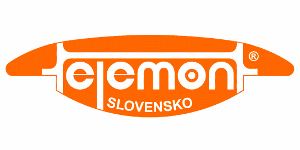|

Deviata správa komisie o implementácii regulačného rámca telekomunikáciíInfo zo zahraničia |
27.11.2003 | Čítalo: 8088 | Diskusia: 0 In its final report on the implementation of the 1998 regulatory framework, and subsequently in its Communication ‘Electronic Communications: the Road to the Knowledge Economy’, the Commission stressed the importance of a full, effective and timely transition to the new EU framework for electronic communications networks and services adopted by the Parliament and Council in March 2002. This position has been strongly endorsed by the European Parliament. The transition to the new framework will support the continued growth of the electronic communications sector, and in particular of broadband connections as a major factor contributing to the fulfilment of the Lisbon objectives. The Growth Initiative launched by the Commission in July 2003 underlines the importance of broadband for economic prosperity, competitiveness and job creation.
The new framework is designed to ensure that ex ante regulation is applied only where the level of competition in defined markets is considered to be insufficient on the basis of an analysis consistent with competition law methodology. Newly emerging markets also should in principle be free from regulation. This approach should boost competition at the level of networks and platforms, while giving national regulatory authorities (NRAs) the tools to mandate access to networks where justified by a lack of competitive pressure on dominant operators.
Other key aspects of the framework are designed to support this approach to regulation and the promotion of consumers’ interests. NRAs are given increased powers to promote a single European market for electronic communications networks and services; players can in principle enter markets on the basis of general authorisation; access and interconnection regimes are based on commercial negotiation, backed by strong NRA powers to ensure end-to-end communications in Europe; and the citizen is protected by a clear and comprehensive framework of universal service and privacy rules, including rules against spamming.
Priložené súbory: Final report 2003 Final report 2003
 Príloha 1 - Market Overview Príloha 1 - Market Overview
 Príloha 2 - Regulatory Data Príloha 2 - Regulatory Data
Späť | Domov
| 

















